Enroute Mt. Aspiring, NZ
We would be remiss to recount our many adventures in New Zealand and never once mention the Maori.
The “native” people of New Zealand are themselves settlers from a foreign land. Polynesian in origin, the Maori trace their roots back to the people of the South Pacific who used their…
“mind-bending supernatural powers of badass navigation so awesome it took the West hundreds of years and a satellite network to replicate what Polynesians could do in their heads around the time the rest of us were learning that fire was hot”
…to locate, land on and settle these islands a few hundred years before Europe came on the scene.
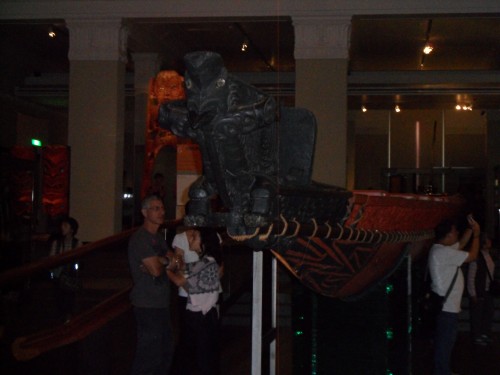 Massive authentic Maori war canoe : 75 feet long & able to carry 100 warriors to battle.
Massive authentic Maori war canoe : 75 feet long & able to carry 100 warriors to battle.
Eventually the West did show up and to make a long story short we colonized New Zealand and eventually claimed her for England. The nation retains its card-carrying status as a member of the “Empire on which the sun never sets” to this day as a member of the Commonwealth.
So where did this leave the natives?
We don’t pretend to be experts on the myriad of issues that face modern-day integrated former colonial societies. Nor can we speak to the complex history of the Maori and the European settlers without a heck of a lot more research than a blog entry would allow. If you’d like to do some reading on the original treaty they signed to bring the lands into the British Empire or the wars that were fought between the Maori and the Europeans please check out those links to get you started.
What we can talk about is our personal experience and what we saw while there. During our adventures we have lived and worked with all kinds of New Zealanders and from that experience we can say while they don’t have everything perfect on any side of the equation; it seems like the Kiwis, no matter their race, have got this thing figured out a heck of a lot better than the rest of us.
New Zealanders embrace the Maori culture as a piece of their history far more effectively than the United States. Where in California and Florida most people know a few key phrases of Spanish and use them in everyday speech, in New Zealand pieces of the native Maori language has been worked into the common dialect.
Also, if you’ve ever seen our new favorite rugby team and the national symbol of New Zealand awesomeness, the world champion All Blacks, you got a dose of Maori culture when the team, at the beginning of each and every game they play, perform the Maori war dance: the Haka.
Just walk around the city of Auckland and see how it has worked to bring in peoples from all over the islands and positioned itself as the de facto capital of the South Pacific. Heck the first thing we saw walking off our flight is a Maori welcome arch framing the entrance to the country.
The short of it is that you’d have to try pretty hard to see New Zealand and not see something of the Maori. The country and its people appear, in modern times at least, to make sure Maori culture has remained a piece of the country.
So though they are a minority in the already tiny national population and there are concerns that their culture needs active conservation to maintain all its elements, over time the Maori way of life has found some level of expression in the national mindset.
We should also ask the question, “In this country comprised completely of self-espoused explorers and immigrants, who exactly falls into the status of ‘native’?” We are natives of the United States of America: we were born there, raised there and consider it our “home country.” We are citizens of that country but we are not considered “Native Americans.” What actually makes a “native” a “native”? One thing that we ran into time and again in our time in New Zealand was that New Zealanders, all of them, refer to themselves as “Kiwis.” Some were even frustrated by the fact that they had to fill out on government forms that they were “European New Zealanders” because, as they put it, they’re not European, they weren’t born in Europe nor were they raised there. They’re Kiwis!
It’s of particular interest to Greg because, though born and raised in California, he is by genetic ancestry a Puerto Rican. (Hey, his mom is 50% and she’s whiter than him.)
It raises interesting questions that Greg has been asking himself and sometimes Tiffany when he needs someone to wax poetic to for hours on end, “How exactly do we define ‘us’ vs. ‘them’ and how do those subjective definitions affect our relationships with other people?”
When does a culture stop evolving and absorbing new peoples along with their traditions and instead become “degraded” or “lost” when new peoples are added to the mix? The Maori had different tribes that integrated while retaining their individuality; why is this new tribe of white-skinned people all that different?
(Well because they’re from a completely different region of the world and they took lands and imposed laws and did horrible things to our people. Note the above reference to land theft and wars.)
Ok, granted, that’s true but it’s also mostly in the past and the Polynesian people weren’t exactly pacifists before the Europeans showed up. That war canoe at the beginning of this entry, along with the warriors it carried, wasn’t a post-European contact development.
This isn’t an argument for “hey, lets just all get along” because the Maori do have a culture, it is under threat of extinction, and it is worthy of preservation.
The descendants of those European settlers who have been born and raised on these islands do have a right to call it their homeland and think that their opinions, traditions and culture should also play an important part in the country.
There are issues of property rights, language conservation, spiritual and societal traditions being passed from one generation to the next so that no part of this country ends up as nothing more than a glorified tourist attraction or a historical footnote. We came face to face with some issues of poverty and neglected people. It was pretty frightening to see what oppression, poverty, disenfranchisement, a couple generations of hate and a couple of hours of alcohol binging could do to a person.
But that wasn’t the norm and it wasn’t what we saw in the day to day life of the citizens of this country. No matter their individual concerns or backgrounds, everyone we spent time with identified themselves at the end of the day, as Kiwis.
So at least they seem in modern times to by and large get this part right. You can see it too: in the way they talk about themselves, in the way their government attempts to handle delicate disputes; they seem to think of themselves as one people.
And in the end, that’s a better foundation than a lot of the rest of us have.
Things didn’t work out so well for the peoples of the Marquesas. Like to learn more about the effects of European colonization of the peoples of the South Pacific? Check out what happened to the peoples of French Polynesia.
Greg and Tiffany are traveling around the world on sailing yachts and keep a video blog of their (mis)adventures. If sailing to Tahiti on a 44 ft sailboat, 3-day delays for wine tastings, getting pooped on by seagulls, opening coconuts with dull machetes, sailing past tornadoes and ukulele Christmas carols are for you, then check them out at www.CoastGuardCouple.com!
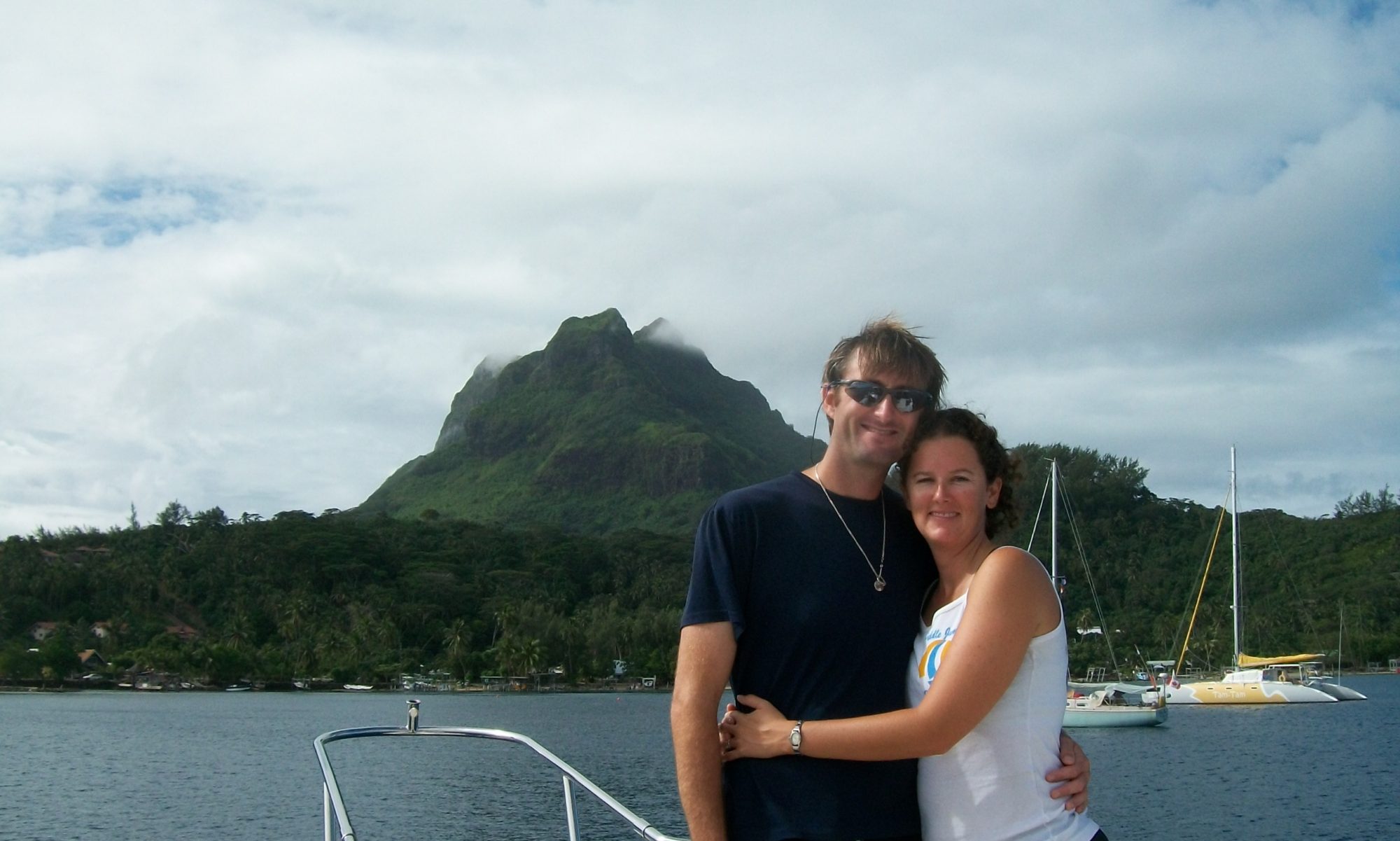
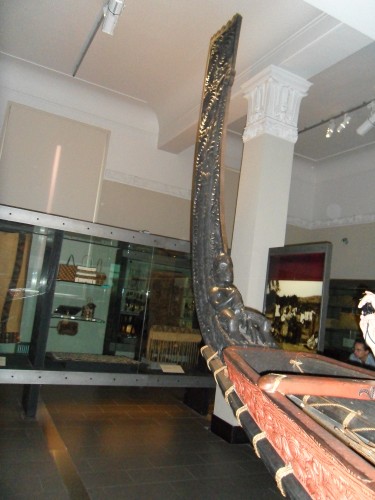
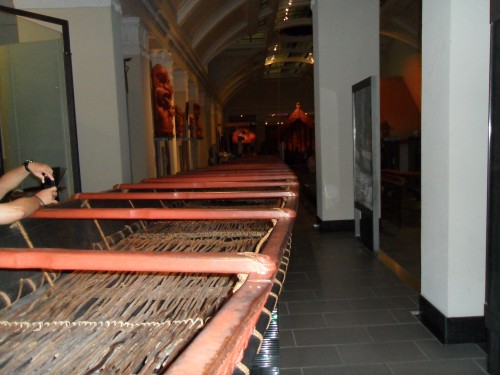
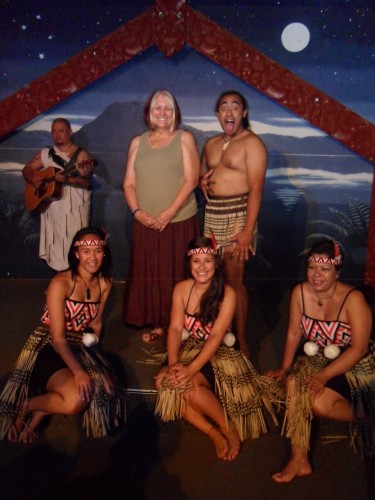
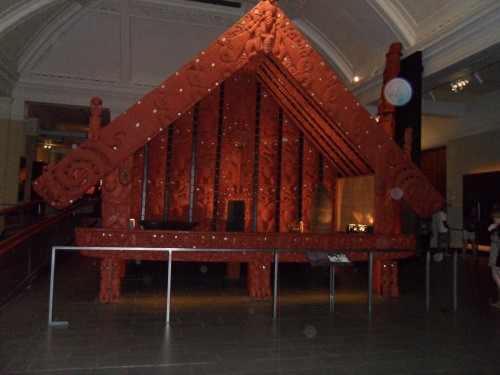

Very well written. Unfortunately, I feel, instead of embracing our “native” cultures, American Indians, Hawaiians, etc we want to change them to be more like us. I was lucky, because of you and Tiff, that I got a chance to see a beautiful country but especially I was priviliged to enjoy the many people I met there. i just wish it wasn’t on the other side of the world, however, that said, it is definitely worth the trip.
Thanks Mom! It was really eye opening to see how differently the “European New Zealanders” interact with the “Native New Zealanders” compared to how we in the US interact with our native peoples. I don’t think they’ve got it perfect yet, but I think it is a healthier relationship that most of those we have at home.
What an awesome piece! I think I have got to link my readers here, it is so in line with the kinds of culturally sensitive dialogue I wish more travelers would engage in!
Thanks Julia! This type of thinking/dialogue is one of the main reasons we travel. Yeah, seeing new things is always awesome, but what is even more important to us is understanding who else we’re sharing this world with. It’s also fascinating to see how differently one of England’s other colonies turned out!